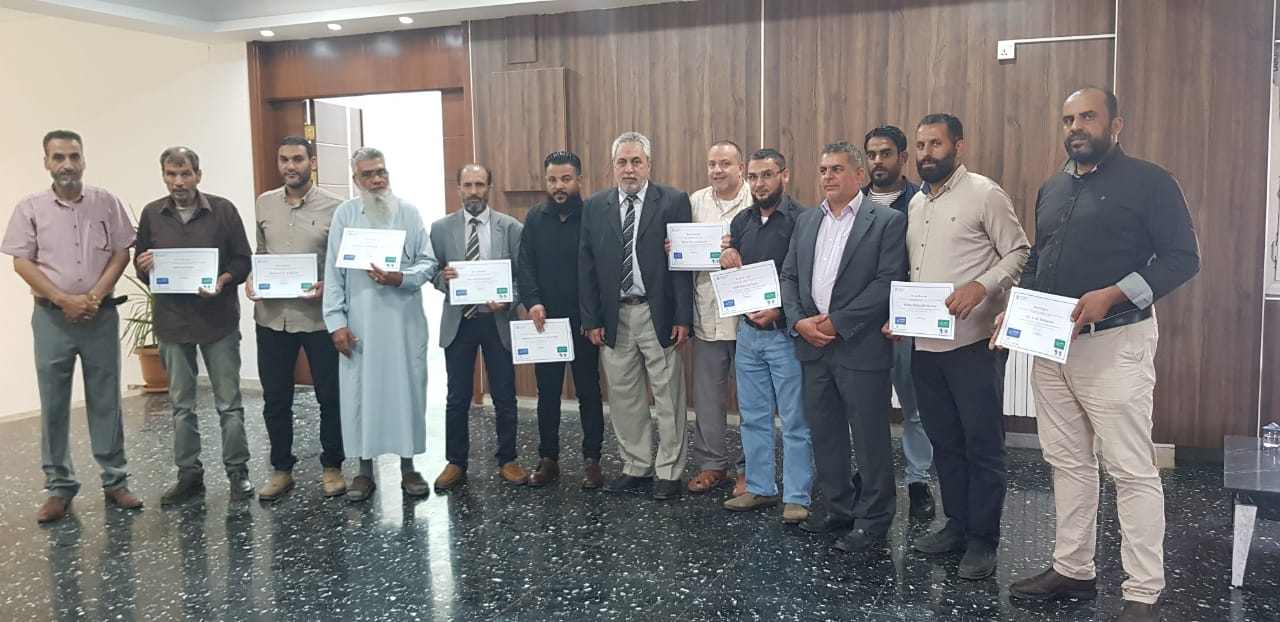FAO supports Libyan partners in floods damage and impact assessment in the Eastern region of Libya
FAO enhances capacity development of local stakeholders on field data collection to better assess agricultural land and water infrastructure damages and losses caused by the floods.

FAO supports Libyan partners in floods damage and impact assessment in the Eastern region of Libya
©FAO
8-11 October 2023, Libya- The Food and Agriculture Organization of the United Nations (FAO) in Libya has organized a training workshop on collecting and managing quantitative and qualitative field data using KoBoToolBox. Deployed on the ground through field survey, the tool will support the assessment of agricultural land and water infrastructure damages and losses caused by the floods and provide information on their impact on the livelihoods of agricultural populations.
The training supports the fieldwork preparation activity that will be launched in the eastern region (Al-Bayda, Derna, Benghazi, and Al Jabal Al Akhdar) which includes stocktaking of background information, sampling design, manuals and templates preparation, software customization and itineraries to process the field data collection in floods impacted regions.
The training was hosted by The Agricultural Research Centre (ARC) in Al-Bayda (Eastern of Libya). This activity has the support of the FAO Subregional Office for North Africa, FAO Office of Emergencies and Resilience (OER), FAO Geospatial Unit of Land and Water division (NSL) and benefits of the collaboration of national partners from the Ministry of Water Resources and the Ministry of Agriculture and Livestock.
The event is organized within the framework of FAO’s work in Libya - Floods Damage and Impact Assessment (FDIA) and within the Capacity Development Program (CDP) of FAO's two complementary projects: “Monitoring, evaluation and rationalization of water use for agriculture sector in Libya” funded by the Italian Agency for Development Cooperation (AICS) and “Evaluation of irrigation infrastructure, crop mapping and estimation of agricultural water use in Libya” funded by the African Development Bank (AfDB).
Twelve local stakeholders (Eastern region) participated in this training, most of which work in the fields of land, water, and agriculture, using GIS and remote sensing for land and crop mapping. The attendees represent various local institutions related to the Ministry of Water Resources, the Ministry of Agriculture and Livestock, the Libyan Center for Remote Sensing and Space Science, and the Agricultural Research Centre Al-Bayda (ARC).
